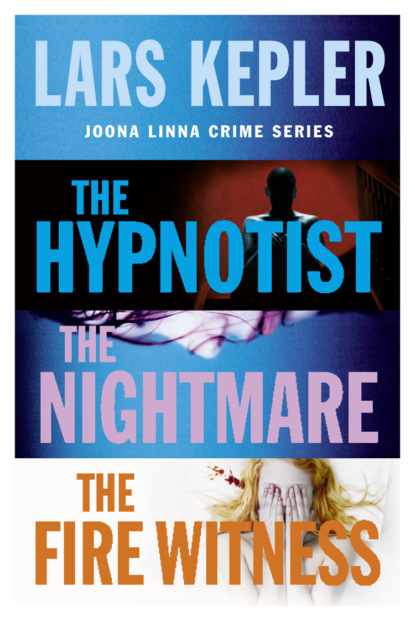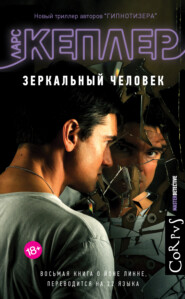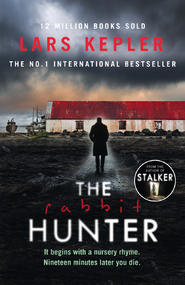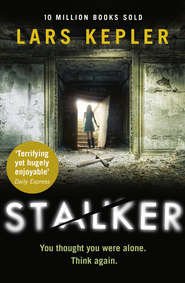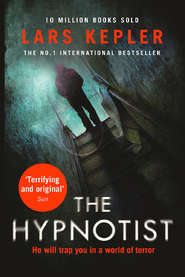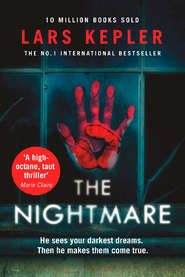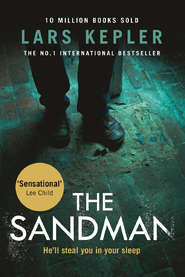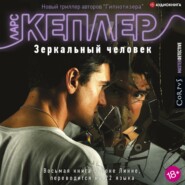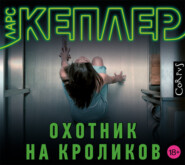По всем вопросам обращайтесь на: info@litportal.ru
(©) 2003-2024.
✖
Joona Linna Crime Series Books 1-3: The Hypnotist, The Nightmare, The Fire Witness
Настройки чтения
Размер шрифта
Высота строк
Поля
We shook hands and he went over to say hello to Sibel, who had just come in. He patted his beer belly and said something that made her giggle and blush. They chatted quietly as the rest of the group arrived: Lydia, Pierre, and finally Marek, slightly late as usual.
I stood motionless, waiting until they felt ready. As individuals, they had one thing in common: they had each suffered traumatising abuse of one kind or another, abuse that had created such devastation within their psyches that they had concealed what had happened from themselves in order to survive. In some cases, I had a greater command of the facts of their lives than they did. They were each, however, acutely aware that their lives had been decimated by terrible events in the past.
“The past isn’t dead, it isn’t even past.” I would often quote William Faulkner. I meant that every little thing that happens to people remains with them throughout their lives. Every experience influences every choice. In the case of traumatic experiences, the past occupies almost all the space available in the present.
Everyone was waiting for me to start, but Eva Blau had not yet arrived. I glanced at the clock and decided to begin without her.
Charlotte always sat furthest away. She had taken off her coat and was as usual dressed elegantly. When our eyes met, she smiled tentatively at me. Charlotte had tried to take her own life fifteen times before I accepted her into the group. The last time she had shot herself in the head with her husband’s elk rifle, right in the drawing room of their villa. The gun had slipped, and she had lost one ear and a small part of her cheek. There was no trace of it now; she had undergone expensive plastic surgery and changed her hairstyle into a smooth, thick bob that concealed her prosthetic ear and hearing aid. Yet despite the fact that she was beautiful and impeccably groomed, I sensed an abyss within her, on the edge of which she was constantly teetering. Whenever I saw her tilt her head to one side, favouring her good ear as she politely and respectfully listened to the others, I always went cold with anxiety.
“Are you comfortable, Charlotte?” I asked.
She nodded and replied, in her gentle, beautifully articulated voice, “I’m fine, thank you.”
“Today we’re going to investigate Charlotte’s inner rooms,” I explained.
“My own haunted house.” She smiled.
“Exactly.” I was always pleased and a little amazed at the way that certain meaningful phrases and expressions were commonly adopted as part of the private idiom in use within the group.
Marek grinned joylessly and impatiently at me as our eyes met. He had been training at the gym all morning, and his muscles were suffused with blood.
“Are we all ready to begin?” I asked.
Sibel spat her chewing gum into a tissue and got up quickly to throw it away. She glanced at me shyly and said, “I’m ready, doctor.”
Slowly I led them into a trance, evoking the image of a wet wooden staircase down which I was leading them. A familiar special energy began to flow among us, a unique warmth we all shared. My own voice, clear and articulated at first, began to register as a series of mesmerising, calming sounds that guided the patients. I seemed to be watching through someone else’s eyes as their bodies settled more heavily into their chairs and their features flattened and relaxed, assuming the coarse, open expression shared by those under hypnosis.
I moved behind them, gently touching their shoulders, guiding them individually all the time, counting backwards, step by step.
“Continue down the staircase,” I said quietly.
I hadn’t told the board that the hypnotist also becomes immersed in a kind of parallel trance as he puts his patients under. In my opinion this was both unavoidable and a good thing. My own trance always took place underwater. I didn’t understand why, but I liked the image of water; it was clear and pleasant, and I had developed a way of using it as a visual and tactile metaphor to help me understand and interpret the course of events during sessions.
My patients were each seeing something completely different, of course; all drifting down into memories, into the past, ending up in the rooms of their childhood, the places where they had spent their youth; returning to their parents’ summer cottages, or the garage of the little girl who lived next door. They didn’t know that for me they were deep underwater at the same time, slowly floating down past an enormous coral formation, a deep-sea plinth, the rough wall of a continental rift, all of us sinking together through gently bubbling water.
This time I wanted to try to take them all with me into a deeper hypnosis. My voice kept on counting, speaking of pleasant relaxation as the water roared in my ears. I watched them.
Jussi hissed something to himself.
Marek’s mouth was open, and a trickle of saliva ran out.
Pierre looked thinner and weaker than ever.
Lydia’s hands hung loosely over the arms of her chair.
“I want you to go even deeper, even further,” I said. “Continue moving downwards, but more slowly now, more slowly. Soon you will stop, very gently coming to rest … a little deeper, just a little more, and now we are stopping.”
The whole group stood facing me in a semicircle on a sandy seabed, level and wide like a gigantic floor. The water was pale and slightly green. The sand beneath our feet moved in small, regular waves. Shimmering pink jellyfish floated above us. From time to time, a flatfish whirled up a little cloud of sand, then darted away.
“We are all deep down now,” I said.
They opened their eyes and looked straight at me.
“Charlotte, it’s your turn to begin,” I went on. “What can you see? Where are you?”
Her mouth moved silently.
“There’s nothing here that is dangerous,” I reminded her. “We’re right behind you all the time.”
“I know,” she said in a monotone.
Her eyes peered at me like those of a sleepwalker, empty and distant.
“You’re standing outside the door,” I said. “Would you like to go in?”
She nodded, and her hair moved with the currents of water.
“Let’s go through the door now,” I said.
“Yes.”
“What do you see?”
“I don’t know.”
“Have you gone inside?” I asked, feeling distantly that I was rushing things.
“Yes.”
“Can you see anything?”
“Yes, I can.”
“Is it something strange?”
“I don’t know. I don’t think so.”
“Tell me what you see,” I said quickly.
She shook her head. Small air bubbles were released from her hair and rose towards the surface, glittering. The nagging sense that I was doing the wrong thing seemed closer now, more insistent, warning me that I wasn’t listening, that I wasn’t helping lead her forward but, instead, was pushing her. Still, I couldn’t help saying, “You’re in your grandfather’s house.”
“Yes,” she replied, her voice subdued.
“You’re inside the door, and you’re moving forward.”
“I don’t want to.”
“Just take one step.”





